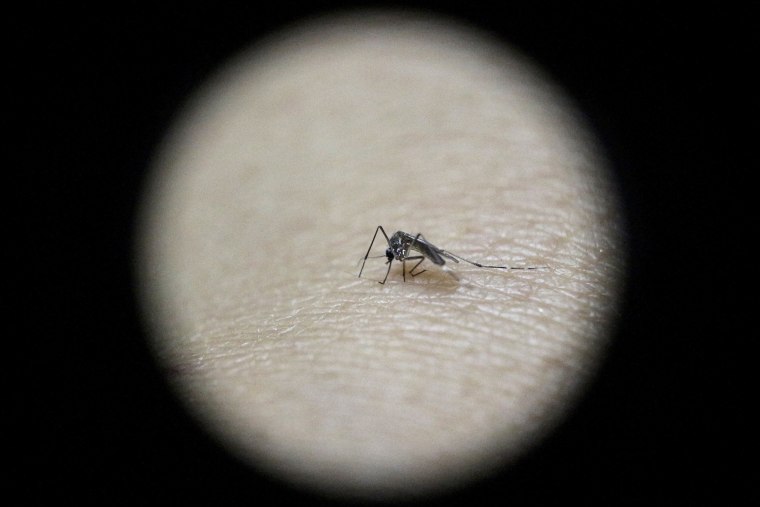No one appears to have caught Zika at the Olympics, the World Health Organization said Thursday.
WHO and other experts predicted the Olympics would not be a big source of Zika spread to the rest of the world. August is winter in Rio de Janeiro, and the Zika-bearing mosquitoes are less active then.

Nonetheless, several athletes withdrew from the games, citing Zika worries.
In its latest update on Zika, WHO said so far there had been no cases although cases could still be reported.
Related: Rio Olympics Unlikely to Spread Zika
“From the reports WHO received from national health authorities, there have so far been no laboratory confirmed cases of Zika virus in spectators, athletes or anyone associated with the Olympics,” WHO said.
“The situation is being closely monitored; a few cases may still occur, especially given the approximately one-week incubation period of the virus.”
Zika doesn’t appear to cause symptoms in most people it infects, so it’s possible people could have been infected and not know it.
Zika's confusing, because it can hang out in a man's semen for months. But people who are infected appear to only have symptoms for about a week, and it takes about a week to develop symptoms after getting bitten by an infected mosquito.
"A few cases may still occur, especially given the approximately one-week incubation period of the virus.”
People who travel to any Zika-affected zone are advised to make sure they don’t get bitten by mosquitoes at home. They’re also advised to practice safe sex, since the virus can be transmitted by all types of sex.
Pregnant women are at the most risk. Babies infected in the womb can suffer horrendous birth defects.
Related: Golf Star Rory McIlroy Pulls Out of Rio Olympics Over Zika Fears
Zika has spread to 53 countries since the beginning of last year, WHO said. “Since February 2016, 11 countries have reported evidence of person-to-person transmission of Zika virus,” it added.
“Twenty countries or territories have reported microcephaly and other central nervous system malformations potentially associated with Zika virus infection or suggestive of congenital infection. Eighteen countries and territories have reported an increased incidence of Guillain-Barre syndrome (GBS) and/or laboratory confirmation of a Zika virus infection among GBS cases,” the group said.
Zika has infected more than 8,000 people in Puerto Rico, the Centers for Disease Control and Prevention said. And it's caused at least two outbreaks in Florida, infecting 43 people who had no travel to Zika-affected zones.

